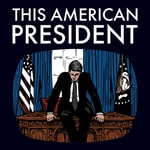History Unplugged Podcast – Détails, épisodes et analyse
Détails du podcast
Informations techniques et générales issues du flux RSS du podcast.

History Unplugged Podcast
Scott Rank, PhD
Fréquence : 1 épisode/3j. Total Éps: 1002

Classements récents
Dernières positions dans les classements Apple Podcasts et Spotify.
Apple Podcasts
🇺🇸 États-Unis - history
31/07/2025#72🇺🇸 États-Unis - history
30/07/2025#80🇺🇸 États-Unis - history
29/07/2025#76🇺🇸 États-Unis - history
28/07/2025#66🇺🇸 États-Unis - history
27/07/2025#66🇺🇸 États-Unis - history
26/07/2025#67🇨🇦 Canada - history
25/07/2025#100🇺🇸 États-Unis - history
25/07/2025#68🇺🇸 États-Unis - history
24/07/2025#67🇺🇸 États-Unis - history
23/07/2025#74
Spotify
Aucun classement récent disponible
Liens partagés entre épisodes et podcasts
Liens présents dans les descriptions d'épisodes et autres podcasts les utilisant également.
See all- https://apple.co/3nCfZZy
10 partages
- https://apple.co/3L4IzN9
6 partages
- https://apple.co/3NMEUTz
6 partages
- https://patreon.com/unplugged
92 partages
Qualité et score du flux RSS
Évaluation technique de la qualité et de la structure du flux RSS.
See allScore global : 43%
Historique des publications
Répartition mensuelle des publications d'épisodes au fil des années.
Steering an Aerial Plywood Box Through Enemy Fire: The Glider Pilots of WW2
jeudi 29 août 2024 • Durée 41:40
– such as a truck or artillery piece – in advance of an airborne invasion. For that, you needed to put that equipment, along with its crew, in a glider. These were unpowered boxes of plywood, pulled by a towing plane into enemy territory by a single cable wrapped with telephone wire.
The men who flew on gliders were all volunteers, for a specialized duty that their own government projected would have a 50 percent casualty rate. In every major European invasion of the war they led the way. They landed their gliders ahead of the troops who stormed Omaha Beach, and sometimes miles ahead of the paratroopers bound for the far side of the Rhine River in Germany itself. From there, they had to hold their positions. They delivered medical teams, supplies and gasoline to troops surrounded in the Battle of the Bulge, ahead even of Patton's famous supply truck convoy.
These all-volunteer glider pilots played a pivotal role from the day the Allies invaded Occupied Europe to the day Germany finally surrendered. Yet the story of these anonymous heroes is virtually unknown.
To explore these stories with us is today’s guest, Scott McGaugh, author of “Brotherhood of the Flying Coffin: The Glider Pilots of World War II.”
Why Few Presidents Had Beards, And Only One Had a Mullet
mardi 27 août 2024 • Durée 34:50
There are surprising, and multi-dimensional ways that hair has influenced the personalities, public and private lives, personal scandals, and tragedies of the men and women who have occupied the White House and influenced the nation at large.
To explore this unconventional aspect of American history is today’s guest, Ted Pappas, author of “Combing Through the White House: Hair and Its Shocking Impact on the Politics, Private Lives, and Legacies of the Presidents.”
Eisenhower’s Logistics and Diplomatic Nightmare: Planning and Executing D-Day
jeudi 25 juillet 2024 • Durée 01:01:35
Outwardly, Eisenhower was a genial cypher. He was liked by all and seemed to make success inevitable. Inwardly, he was near constantly abuzz with brilliance, exhaustion, will, frustration, and the acute awareness that failure was always a possibility. The D-Day landing sees him at this unique, extraordinarily consequential moment, for D-Day would not only go down as one of the most important military successes in history but would also forge a modern George Washington.
To explore this story, we are joined with today’s guest, Michel Paradis, author of “The Light of Battle.” We see how Ike masterminded D-Day, wielding his unique leadership skills to save Europe and shape the course of history.
Parthenon Roundtable: Which Person From History Deserves a Movie?
jeudi 5 octobre 2023 • Durée 51:40
Charlie Chaplin vs. America
mardi 3 octobre 2023 • Durée 44:36
Politics aside, Chaplin had another problem: his l interest in young women. He had been married four times, had had numerous affairs, and was publicly involved in at least three paternity suits. His inappropriate sexual proclivity became another reason for those who opposed his ideas to condemn him.
Today’s guest is Scott Eyman, author of “Charlie Chaplin vs. America.” We discuss historically pivotal moment of Hollywood’s rise and a prescient narrative with modern implications: that of cancel culture, artistic freedom, censorship, and the all-important question of whether we should be separating art from the artist.
Joe McCarthy, the Hydrogen Bomb, and Ten Fateful Months That Kicked Off the Cold War
jeudi 28 septembre 2023 • Durée 40:35
To look at these fateful months is today’s guest, Nick Bunker, author of “In the Shadow of Fear.” At the time, Sir Winston Churchill described the United States as “this gigantic capitalist organization, with its vast and superabundant productive power – millions of people animated by the profit motive.” The dollar reigned supreme, and Harry S. Truman and his Democratic allies in Congress hoped to use the country’s economic might to build on Franklin D. Roosevelt’s achievements with a bold new program of liberal reforms.
However, in the autumn of 1949 and the first half of 1950, Truman and his party were overtaken by the unforeseen. While Mao Zedong’s army swept through China, in America the age of FDR gave way to the beginnings of a new conservatism. An aggressive Republican Party, desperate for power, seized on rifts among its opponents, and Truman’s programs went down to defeat. As he launched his first anti-communist campaign, the young Joe McCarthy ambushed Truman with a style of politics that polarized the country. Leaders and citizens were compelled to improvise as events spun out of control.
The SAS Began as a Lie but Became Britain’s Most Elite WW2 Commando Unit
mardi 26 septembre 2023 • Durée 51:27
Today’s guest is Joshua Levine, author of “SAS: The Authorized Illustrated History of the SAS.” We discuss what it was like to fight and train in the SAS during the World War II by exploring individual stories and personal testimonies of the wartime experience.
Eyewitnesses of History Share Stories of the 1980 Miracle on Ice, Pablo Escobar, Jonestown, and Much More
vendredi 22 septembre 2023 • Durée 44:04
First up, revisit his conversation with Frank DeAngelis, former principal of Columbine High School, recounting the harrowing events of the 1999 massacre.Apple Podcasts: https://apple.co/3Ow8UF0 / Spotify: https://sptfy.com/OWMr
Next, dive into the world of podcasting with the podfather himself, Adam Curry. Discover the fascinating tale of his MTV days and presenting an award to Michael Jackson.Apple Podcasts: https://apple.co/3Df7jgn / Spotify: https://sptfy.com/OWMt
CIA Agent Valerie Plame takes the spotlight in the next segment, shedding light on the notorious 'Plame Affair' of 2003.Apple Podcasts: https://apple.co/48gSyYx / Spotify: https://sptfy.com/OWMw
Sports enthusiasts, get ready! HBO Boxing legend Jim Lampley shares his experiences covering the 1980 Winter Olympics in Lake Placid, including the unforgettable 'Miracle on Ice.'Apple Podcasts: https://apple.co/3YeyxNZ / Spotify: https://sptfy.com/OWMx
Jonestown cult survivor and writer Eugene Smith takes a solemn turn as he revisits his journey through tragedy and survival.Apple Podcasts: https://apple.co/451VIgu / Spotify: https://sptfy.com/OWMz
Rock music lovers, stay tuned for insights from Ken Caillat, the record producer behind Fleetwood Mac's iconic albums, including the Emmy-winning 'Rumors.'Apple Podcasts: https://apple.co/3rhuyEb / Spotify: https://sptfy.com/OWMB
Hear from DEA Agents Steve Murphy and Javier Peña, the real-life heroes who took down Pablo Escobar, inspiring the hit Netflix series 'Narcos.'Apple Podcasts: https://apple.co/3r5Cf0h / Spotify: https://sptfy.com/OWMD
Podcasting sensation Jordan Harbinger shares his adventures and observations in North Korea.Apple Podcasts: https://apple.co/3JXYmfe / Spotify: https://sptfy.com/OWMF
And finally, wrap up with a legendary performance – an interview with Queen's keyboardist, Spike Edney, discussing their iconic set at Live Aid in 1985.Apple Podcasts: https://apple.co/3Roxxp6 / Spotify: https://sptfy.com/OWMH
In 1864, Nine Union Officers Escaped from a POW Camp and Trekked 300 Miles to the North
jeudi 21 septembre 2023 • Durée 53:44
After arriving in Knoxville, Tennessee, and checking in with Union authorities, one of the men had a wonderful idea. The nine officers and their three mountain guides found a local photographer, hoping to commemorate what they had accomplished by posing together for a photograph. The instant, frozen in time, showed twelve ragged men with determination strong on their faces. It was a Civil War selfie. A moment that Captured Freedom.
Steve Procko, a documentarian, received a copy of the more than 150-year-old photograph from a descendant of one of the mountain guides. Upon identifying and researching the men in the photograph, he realized their remarkable story had never been told. Procko is today’s guest, and he’s here to tell the story. He’s also the author of “Captured Freedom: The Epic True Civil War Story of Union POW Officers Escaping From a South Prison.”
Teddy Roosevelt Nearly Died in a Cavalry Charge Against German Machine Guns in WW1
mardi 19 septembre 2023 • Durée 39:17
Suffering from grief and guilt, marginalized by world events, the great glow that had been his life was now but a dimming lantern. But TR’s final years were productive ones as well: he churned out several “instant” books that promoted U.S. entry into the Great War, and he was making plans for another run at the Presidency in 1920 at the time of his death. Indeed, his political influence was so great that his opposition to the policies of Woodrow Wilson helped the Republican Party take back the Congress in 1918. To look at Roosevelt’s final years is today’s guest Bill Hazelgrove, author of “The Last Charge of the Rough Rider.” It was Roosevelt’s quest for the “vigorous life” that, ironically, may have led to his early demise at the age of sixty. "The Old Lion is dead,” TR’s son Archie cabled his brother on January 6, 1919, and so, too, ended a historic era in American life and politics.




